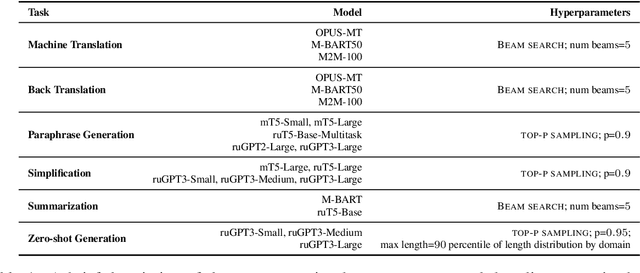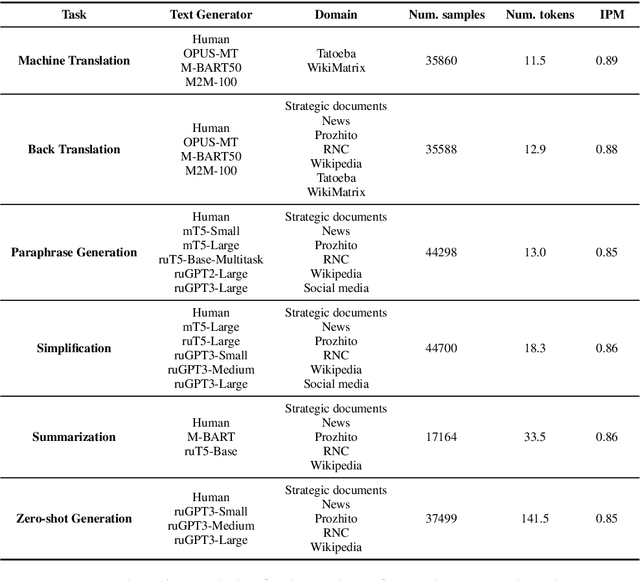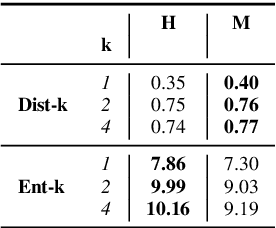Marat Saidov
LUNA: A Framework for Language Understanding and Naturalness Assessment
Jan 09, 2024
Abstract:The evaluation of Natural Language Generation (NLG) models has gained increased attention, urging the development of metrics that evaluate various aspects of generated text. LUNA addresses this challenge by introducing a unified interface for 20 NLG evaluation metrics. These metrics are categorized based on their reference-dependence and the type of text representation they employ, from string-based n-gram overlap to the utilization of static embeddings and pre-trained language models. The straightforward design of LUNA allows for easy extension with novel metrics, requiring just a few lines of code. LUNA offers a user-friendly tool for evaluating generated texts.
Findings of the The RuATD Shared Task 2022 on Artificial Text Detection in Russian
Jun 03, 2022



Abstract:We present the shared task on artificial text detection in Russian, which is organized as a part of the Dialogue Evaluation initiative, held in 2022. The shared task dataset includes texts from 14 text generators, i.e., one human writer and 13 text generative models fine-tuned for one or more of the following generation tasks: machine translation, paraphrase generation, text summarization, text simplification. We also consider back-translation and zero-shot generation approaches. The human-written texts are collected from publicly available resources across multiple domains. The shared task consists of two sub-tasks: (i) to determine if a given text is automatically generated or written by a human; (ii) to identify the author of a given text. The first task is framed as a binary classification problem. The second task is a multi-class classification problem. We provide count-based and BERT-based baselines, along with the human evaluation on the first sub-task. A total of 30 and 8 systems have been submitted to the binary and multi-class sub-tasks, correspondingly. Most teams outperform the baselines by a wide margin. We publicly release our codebase, human evaluation results, and other materials in our GitHub repository (https://github.com/dialogue-evaluation/RuATD).
 Add to Chrome
Add to Chrome Add to Firefox
Add to Firefox Add to Edge
Add to Edge